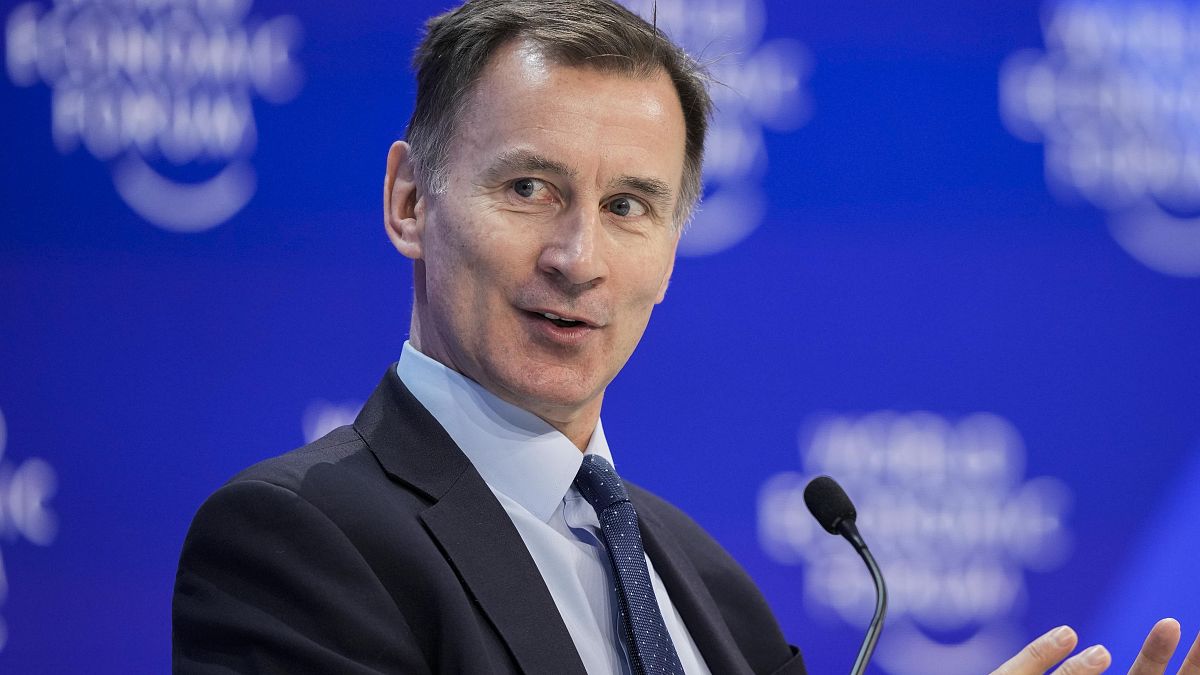Hopes build for a cut in taxes as UK government borrowing drops sharply in December.
The UK government borrowed £7.8 billion (€9.1 billion) to cover spending costs in December, a fall of £8.4 billion (€9.8 billion) year-on-year.
That’s the lowest December figure since 2019, and it’s also substantially less than the £14 billion (€16.3 billion) predicted by the UK's fiscal watchdog, the Office for Budget Responsibility (OBR).
Government savings on interest payments contributed to the surprise result, as payouts on state debt fell to £4 billion (€4.7 billion), helped by falling inflation.
In December 2022, the government paid out a much larger sum of £14.1 billion (€16.5 billion) in debt interest payments, according to the Office for Nationalist Statistics (ONS).
"For a chancellor hoping to fund a series of crowd-pleasing tax cuts in the not-too-distant future, the latest health check on public sector finances will be cause for celebration," said Danni Hewson, head of financial analysis at AJ Bell.
With his party well behind in the polls, Conservative chancellor Jeremy Hunt is looking at ways of sweetening up voters ahead of a general election, expected to take place this year.
The chancellor, at last week's World Economic Forum in Davos, hinted at planned tax cuts in his Budget to be revealed on 6 March.
"In terms of the direction of travel, we look around the world and we note that the economies growing faster than us in North America and Asia tend to have lower taxes," Hunt said.
"I believe fundamentally that low-tax economies are more dynamic, more competitive and generate more money for public services like the NHS."
In November's Autumn Statement, Hunt cut business and personal taxes by £20 billion (€23.4 billion), but the tax burden is nonetheless continuing to rise.
This is linked to the government's decision to freeze national insurance and income tax thresholds until April 2028, which will push more people into a higher tax band because of inflation and wage growth.
One the UK's key fiscal rules requires debt to be falling as a share of national income in five years' time, a rule that can constrain generous tax cuts.
Thanks to the new debt figures, experts from Capital Economics believe the Chancellor may have £20 billion (€23.4 billion) of headroom by the time the March Budget arrives.
Although the UK is still three months away from the end of its fiscal year, the government is currently set to undershoot the OBR's full-year borrowing forecast of £123.9 billion (€145 billion), according to Capital Economics.
Danni Hewson at AJ Bell nonetheless warns that cutting taxes too generously may weaken the UK's ability to weather an "economic storm".
"Relieving some of the tax burden that has weighed on our personal finances might be a vote winner, but without an economy firing on all cylinders there will be big questions about what's left in the tank," Hewson said.
The UK's total debt, which has built up over several years, was £2.67 trillion (€3.12 trillion) at the end of December.
This constitutes 97.7% of GDP, the highest level seen since the 1960s.



